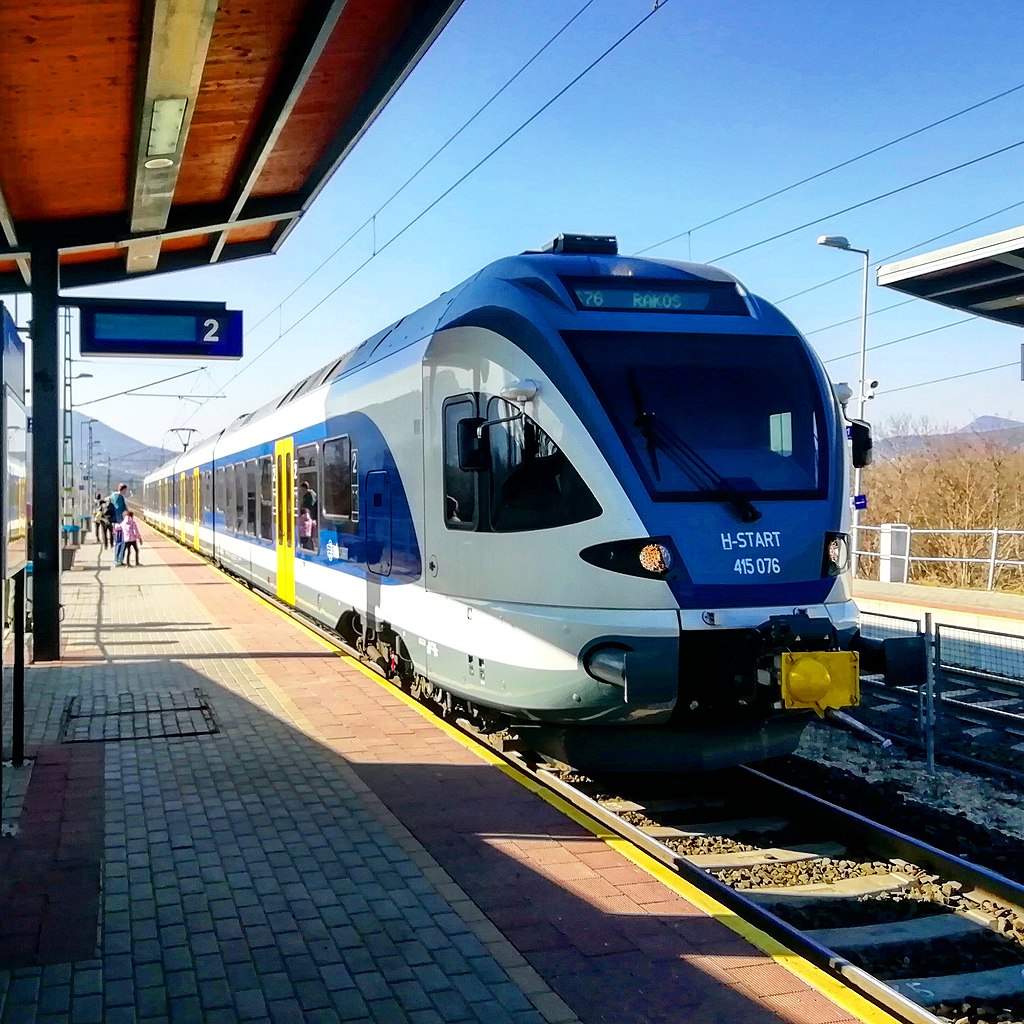The Hungarian State Railways (MÁV) has been struggling recently with delays, cancellations, breaking railway tracks and other problems. This autumn, MÁV will introduce a new operation scheme in several suburban lines around Budapest. The changes concern the line carrying passengers to and from Budapest Airport and Győr (Vienna).
MÁV introduces a new system affecting Budapest Airport, Vienna lines
According to mav.hu, ticket inspectors will disappear from several MÁV lines connecting Budapest with its suburbs. The new scheme will start on 2 September between Rákos and Pilisvörösvár (line S76). There was a testing period on that line between 7 April and 31 May, and it seems it was successful because MÁV plans to expand the scheme to other railway lines in Hungary.
MÁV said in Western Europe, trains commuting without ticket inspectors are common.
The next step will be the Budapest-Esztergom, Budapest-Győr, Bicske-Budapest-Kelenföld (G10), and Budapest-Déli-Komárom (S10) lines from 16 September. From 2 September, there will be no ticket inspectors on the Rába InterRégió trains on the weekends.

The next round will start on 30 September by extending the system to the Budapest-Székesfehérvár (S36, G43) and the Budapest-Déli-Százhalombatta and Budapest-Déli-Pusztaszabolcs lines. The extension will happen on the Budapest-Nyugati-Monor(-Szolnok) (S50, Z50) line and some weekend night passenger trains between Budapest and Szolnok, Sülysáp, Nagykáta (S60) and Gödöllő (S80). The route to Budapest Airport from the Nyugati Railway Station is on the S50 line, but you have to take off the train at the Ferihegy train station to get on the 100E bus (or a taxi) and get to the Airport with a 10-15 minutes ride.
Train conductors will have more work
The lines will operate without a ticket inspector for a testing period. MÁV promised to draw passengers’ attention via loudspeakers that they were travelling without ticket inspectors. That is because their task is not only verifying tickets’ validity, but also helping passengers in case of emergency, supporting the conductor and disabled passengers.
MÁV wrote passengers may use the emergency call if needed (technical problems, health issues) and establish contact with the conductor. However, you should call the conductor only in real emergency cases.

MÁV also highlighted that you could only start your ride with a valid ticket or pass. The state-owned company will have random ticket inspections on the lines. Travelling on the trains without a ticket or pass would mean higher surcharges.
Disabled people should inform MÁV 36 hours prior to travel to get proper help.
The new system will place more burden on the conductors. They will inform the passengers about any irregularities concerning their travel. Furthermore, they will be responsible for safe boarding and get-offs via the surveillance camera system. They will also help passengers with disabilities.
In extraordinary situations, ticket inspectors will return to the trains.
Read also:
- Five important things you should know before travelling by train in Hungary – read more HERE
- Cargo transport in Hungary in grave danger: authorities may close key Danube bridge because it threatens lives
This will lead to an epidemic of fare evasion, a well-known Hungarian national sport. Even though county and country passes are available for paltry sums many will seek to evade paying for tickets purely for the thrill of getting one over the state. The scheme will have been costed on the basis that most passengers will have a pass or are law abiding and buy tickets while offering a pathway to a free ride for a hardcore. It’ll also serve to increase the quantity of anti-social elements on the train which is off-putting for ordinary travellers. There is an immediate saving in not having to pay the wages of ticket inspectors but the longer term damage will be greater.